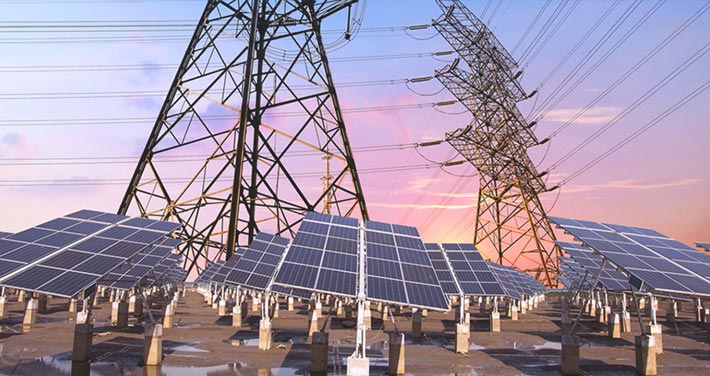Natural gas is a clean-burning energy source that is better for your home, business, and the environment. Heat and hot water systems that use natural gas require less maintenance than those that burn oil, and because it’s available on demand, there’s no need to worry about running low or scheduling deliveries.
Unitil has long recognized the value that renewable energy brings to our customers. It also benefits both the economy and the environment, conserving fuel resources and reducing unnecessary environmental impacts.
For over a decade, we have partnered with the University of New Hampshire, which has a biogas program that provides heat and hot water to their campus.
What Is Renewable Energy?
As innovation and improvements in technology bring about new options in clean energy at lower costs, renewable energy sources are replacing fossil fuels such as oil, gas, and coal. Wind power and solar energy come to mind when we talk about renewable energy sources, but there are other sources as well.
What Is Renewable Natural Gas?
Renewable natural gas (RNG), a highly refined form of biogas, captures the methane produced by decomposing waste – food waste, animal manure, wastewater sludge, and garbage and repurposes it as a storable, replenishable fuel that looks and acts like natural gas. It’s a practical, cost-efficient, and reliable energy solution that addresses the problem of solid waste and helps slow the effects of greenhouse gases on the environment.
Reduce, Reuse, Recycle
RNG adoption reduces the need for fossil fuels, lowering emissions. It also allows for the continued use of existing gas pipelines and infrastructure, taking advantage of investments already made in the communities we serve, and enables more rapid adoption through existing connections to our delivery system. Lastly, RNG creates an alternative use for high emission wastes created primarily by the agriculture and waste management industries. By capturing and repurposing these gases that would otherwise be released to the atmosphere, RNG is not just carbon neutral but carbon negative for a region.
Our Commitment
Unitil is committed to helping our customers conserve natural resources and increase the efficiency of their energy use. Such practical initiatives may include local wind, solar, or other renewable energy systems, environmental conservation and remediation efforts, or studies that increase public understanding of energy production, supply, and regulatory issues.
Environmental protection is a priority we take seriously. For over a decade, we have partnered with the University of New Hampshire, which has a biogas program that provides heat and hot water to their campus. In addition, we are actively soliciting RNG program proposals to integrate with our system.
By diversifying our fuel portfolio, Unitil strives to ensure our impact on the area’s natural resources is minimized so that its uniqueness is preserved for future generations. We are proud of our environmental accomplishments, both past and present, and are committed to the preservation and enhancement of the region’s environmental heritage.
Key Takeaways:
- Renewable natural gas not only repurposes solid waste as fuel, but it removes dangerous greenhouse gases from the atmosphere in the process.
- RNG is produced from the abundant organic waste generated by normal human and animal activity – without drilling or fracking.
- RNG is interchangeable with conventional natural gas, it can be used in all the same applications — cooking, heating/cooling, power generation, and more. As a transportation fuel, RNG can replace high-carbon diesel in trucks and buses.





